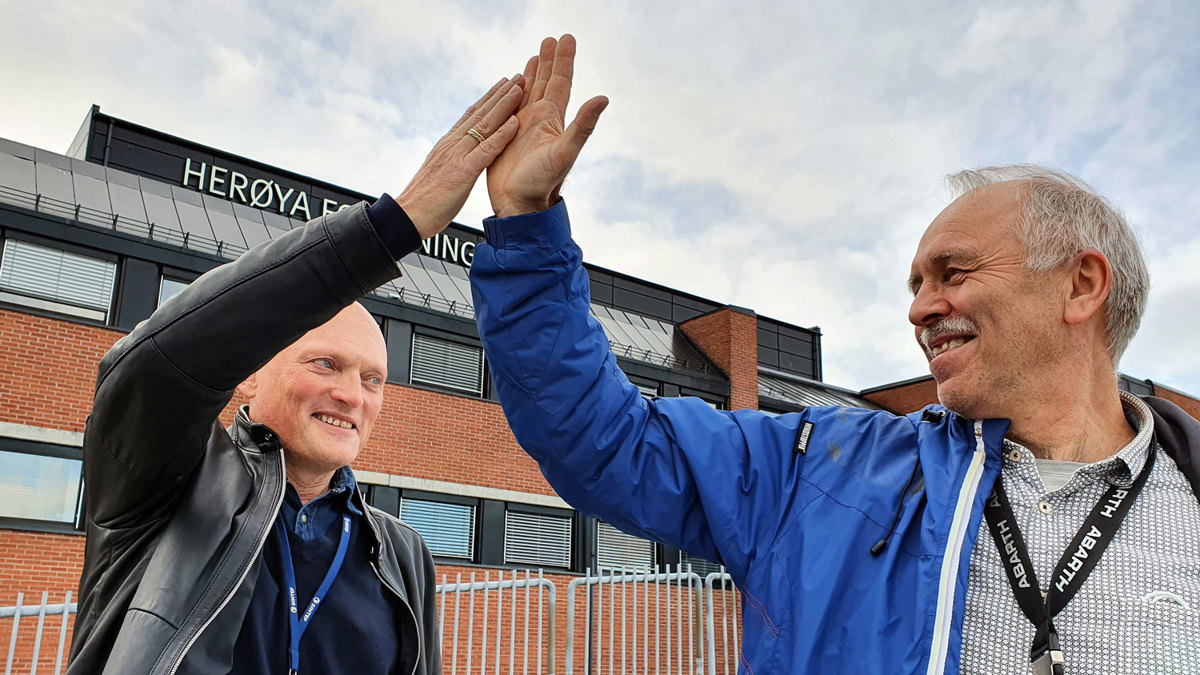The players are the Universities of Southeast Norway (USN), the University of Agder, NTNU and Sintef, together with the industry companies Eramet, Hydro, Elkem, Jotun and Boliden.
They are leading players in Norway, originating from the national DigiPro cluster. The parties received NOK 4.5 million from the Directorate for Higher Education and Competence recently for their cooperation in raising competence in digitisation in the process industry.
The financial support goes to developing continuing and further education courses. Twenty participants from the industrial companies are ready to start and complete courses, beginning next autumn.
Technology management, data security and data analysis first
The University of Southeast Norway (USN), led by Nils-Olav Skeie, started working with the parties in January.

"The companies have selected three areas of expertise, technology management as in lean digital, data security and data analysis. All companies want a boost in these areas," says Nils-Olav Skeie. "We also create a superstructure course we call Digitisation in the Process Industry. The reason for this is that in the long run we want to develop more courses.
The superstructure course gives the participants the opportunity to combine two or more courses to solve practical challenges from their own company. "Using the knowledge gained from these courses in practice becomes an important part of competence development," he says.
Pioneering
The collaboration on competence development between some of Norway's leading educational and research environments together with industry is groundbreaking. USN plays together with Agder University, with NTNU, Sintef and the industrial companies to develop course content. Experts from NTNU Trondheim have the main responsibility for technology management, NTNU Gjøvik for data security and the University of Agder, Sintef and USN are responsible for data analysis.
The parties are working to start courses next autumn with 20 participants, basically with four from each of the companies.
Strategically important
"This is not just an education, strategically it is much more than that," believes Frode Brakstad, leader at the DigiPro cluster.

The participants invest strategically in competence, and this is very good for them," Brakstad points out. "Even though it is not a big project, it is strategic and a nice twist for the companies to be part of. It is also strategically important that we can expand topics and make this available to other Norwegian process industries. The goal is to improve the competitiveness of Norwegian industry by facilitating a faster and easier digital transformation."
National cooperation
Brakstad mentions other clusters with which it is natural to expand the collaboration in this project, including the regional Industrial Green Tech, the Eyde cluster in south Norway and ACT on the Helgeland coast.
"Together with these clusters, we can manage to lift digital services, expertise and technologies in a faster and better way than what would have been the case without DigiPro and projects of this type," he explains.
"Doing digitisation correctly will be a very important success factor in the future. You could call it green digitisation, that's what we're working on. Competence is an important part of this. We are proud that it has its origins in the University of Southeast Norway and the DigiPro cluster."
Requested by Norsk Industri
"Norsk Industri (The Federation of Norwegian Industries) and the expert group on Competence in Process21 encouraged the DigiPro cluster to apply for this project," says Brakstad. "This support is a great recognition that in a short time we have become a central national cluster for the digital process industry of the future," the cluster leader says.
"And it fits in well with the plans Herøya Industripark AS has to build an innovation environment here at Herøya in Porsgrunn. That's brilliant!

01. February 2022




